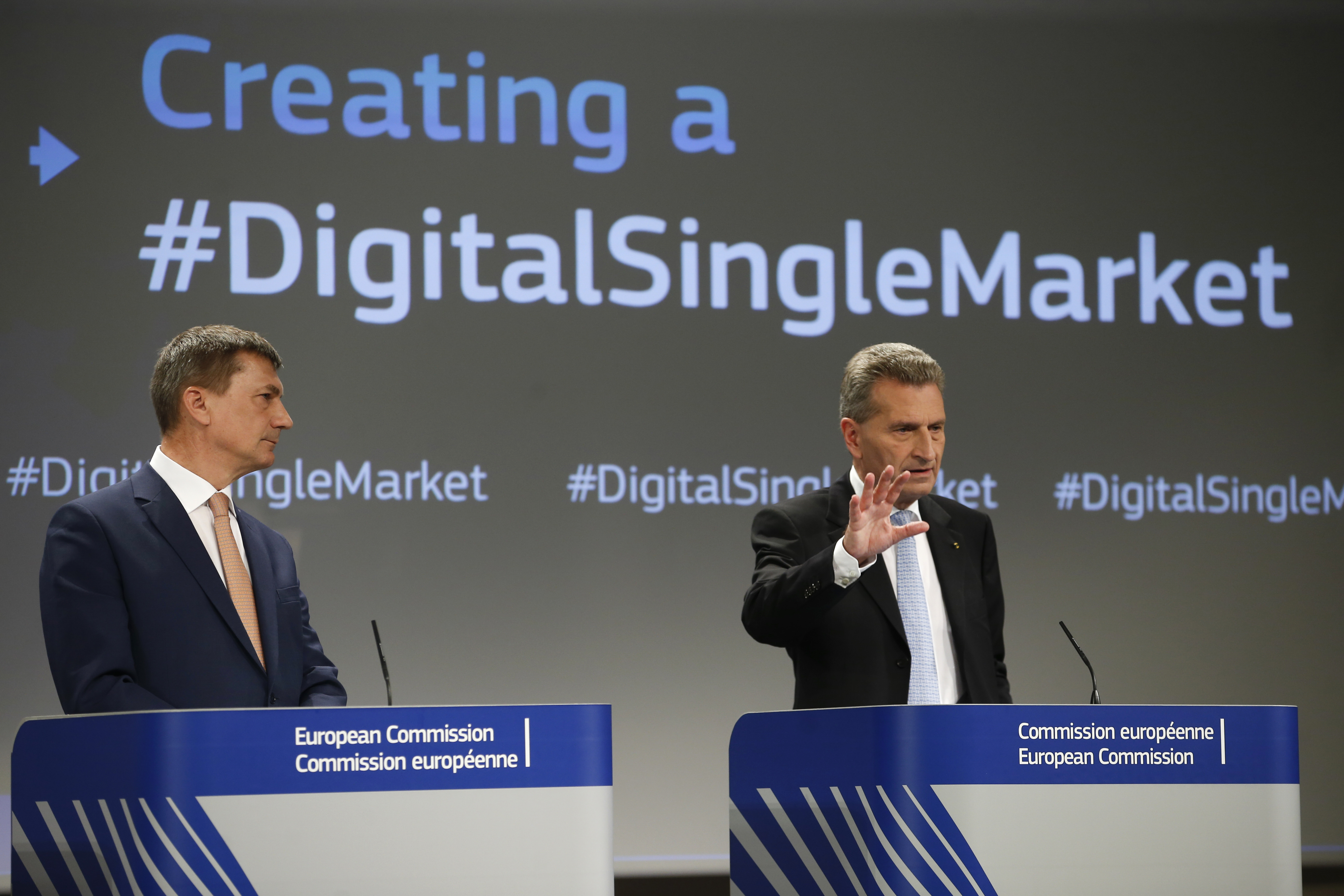
EU closer to a Digital Single Market
Employment and Social Affairs 1 June 2015On the 6th of May the EU Commission presented its plans for the creation of a Digital Single Market (DSM). The European Commission has been banging on about the implementation of a Digital Single Market within the EU for quite a while, but now Vice-President for the Digital Single Market, Andrus Ansip, together with Commissioner for the Digital Economy and Society, Günther Oettinger, have launched the new strategy for 2015-2016.
The plan comprises 16 central measures to be implemented by the end of 2016 and is built on three pillars: 1) better access for consumers and businesses to digital goods and services across Europe; (2) creating the right conditions and a level playing field for digital networks and innovative services to flourish; (3) maximising the growth potential of the digital economy.
DSM has been rightly comprised as one of the EU top priorities, as it could bring new jobs, growth and investment in Europe. Information and Communication Technologies (ICT) are today one of the main driving force of change for Member States economies. ICT can drive productivity, innovation and growth in all sectors of the economy, as the global economy is rapidly becoming digital. These changes are happening at a scale and speed that bring immense opportunities for innovation, growth and jobs. The DSM can even create opportunities for new startups.
 Within the abovementioned DSM’ three pillars the EU should now work to provide new rules, making cross-border e-commerce easier, avoiding “geo-blocking” (a discriminatory practice used for commercial reasons), harmonizing national copyright regimes, promoting the free movement of data in the European Union, producing a relevant overhaul of EU telecoms rules and copyright law.
Within the abovementioned DSM’ three pillars the EU should now work to provide new rules, making cross-border e-commerce easier, avoiding “geo-blocking” (a discriminatory practice used for commercial reasons), harmonizing national copyright regimes, promoting the free movement of data in the European Union, producing a relevant overhaul of EU telecoms rules and copyright law.
It could be useful to provide an example of some bottlenecks that could be overcome by the new measures. Currently, only 7 % of SMEs trade cross-border in the EU, and small online businesses that wish to do so face high extra costs in adapting to national laws, according to EU figures. The Commission claims, however, that 57 % of companies would either start to sell cross-border or increase their activity if all EU Member States had the same e-commerce laws.
The new strategy seems to represent a key step towards a fair regulatory environment, crucial to boost the European digital economy and a more inclusive society, to encourage future investments in digital economy. Aside from digital markets, the EU’s traditional industry also has a lot to gain from the Digital Single Market. The digitalisation of industry in sectors such as manufacturing, the automotive industry, energy, transport, entrepreneurship, but also public services and education can lead to significant improvement, while creating new job opportunities. Digitalisation constitutes a huge opportunity to enhance EU growth and productivity and to create quality employment.
Global competitors, such as the US, Japan and South Korea are rapidly expanding the digitalisation of their economies. The Digital Single Market should help Europe in keeping up with this inevitable global trend. How much of the strategy will be effectively implemented depends now on the European Council and Member States’ willingness for increased regulation.







